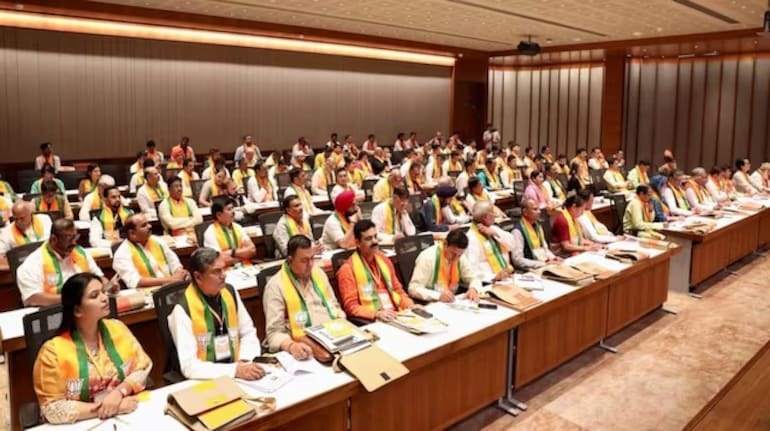
Following the President's assent, the Waqf Amendment Bill officially became the Waqf Amendment Act, triggering the launch of a BJP-led campaign titled ‘Waqf Sudhar Janjagaran Abhiyan’ to raise awareness of the reforms. A day-long workshop in New Delhi on Thursday marked the campaign's kickoff.
Key leaders in attendance included BJP National President JP Nadda, General Secretary (Organisation) BL Santosh, Union Minority Affairs Minister Kiren Rijiju, and General Secretary Radha Mohandas Agarwal.
Focus on Transparency and Social Empowerment
During the workshop, Minority Affairs Minister Kiren Rijiju presented the Act's main features, highlighting its focus on promoting transparency in Waqf property management and empowering weaker sections of the Muslim community, particularly women.
JP Nadda emphasized the reforms' broader impact on social justice and women's empowerment. He also criticized political figures who opposed the reforms for alleged self-interest, citing examples of properties used for commercial gain under the Waqf label.
Strategic Communication Plan to Avoid Misinformation
Learning from past experiences such as the CAA protests and the Article 370 abrogation, BJP leaders have planned a proactive communication strategy to avoid unrest. The campaign will involve outreach to various stakeholders and counter any misinformation spread by opposition parties.
Leaders were reminded of the misinformation campaigns during the 2024 Lok Sabha elections, where opposition narratives reportedly hurt BJP’s electoral standing.
District-Level Outreach and Community Engagement
As a part of the broader campaign, the BJP will initiate district-level workshops. These will be led by a three-member team including a minority representative, a party office-bearer, and a regional leader.
From April 20 to May 5, a series of seminars, public meetings, and institutional lectures will be conducted nationwide to explain the significance of the reforms. Special focus will be placed on engaging women from minority communities.
Parliamentary Journey and Legislative Scrutiny
The Waqf Amendment Act was passed during the recent Budget Session of Parliament. It was approved in the Lok Sabha on April 3 after midnight and in the Rajya Sabha on April 4, following a 16-hour discussion—the second-longest in the chamber’s history.
The final legislation includes 14 amendments recommended by the Joint Parliamentary Committee, reflecting extensive consultation, including feedback from within the Muslim community demanding greater accountability in Waqf board operations.
Read More: They Fired a Gunshot, We Are Bleeding CJI’s Emotional Outburst Over NCERT Textbook

 Share
Share



